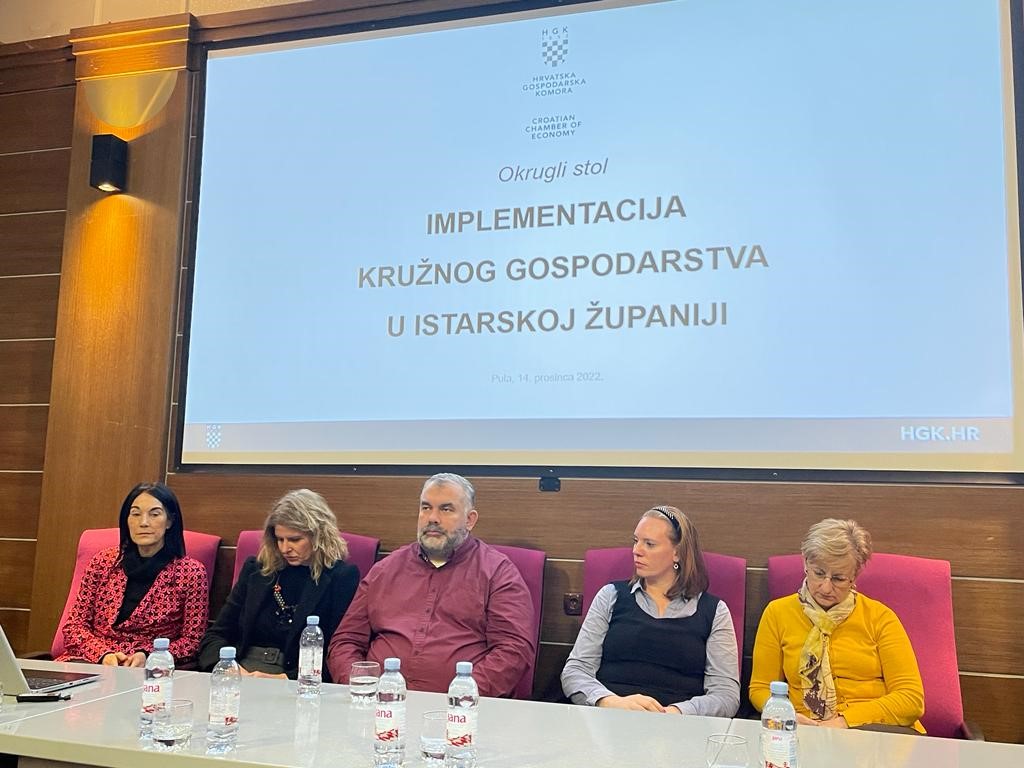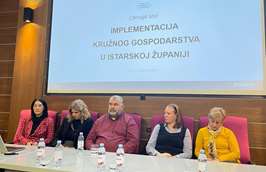14.12.2022.
After Osijek, Split, and Rijeka, the representatives of the Fund took part in a round table on the implementation of the circular economy that was held in the Pula County Chamber.“The industry and the economy need to transition from a linear to a circular model. That’s why we need events like this one, so that our entrepreneurs, and the public in general, could get informed about the importance of the circular economy, which is one of the key elements in environmental protection and preservation of the natural resources,” said Zvonimir Majić, the head of the Sector for the management of special categories of waste at the Fund. He pointed out the goal the European Commission had set of becoming carbon-neutral by 2050, with an important segment to achieving it being the Circular Economy Action Plan (CEAP) as one of the main components of the European Green Deal. “The Action Plan is aimed design and production of environmentally friendly products, as well as reuse, repair and repurposing of products to extend their useful life,” said Majić. Considering that 60% of municipal waste should be recycled and put into use by 2030, utility companies will play an important role. Majić informed the participants in the conference about the new Ordinance on packaging, which is in the public consultations procedure, and referred to the extended producer responsibility scheme.
Anđelko Švaljek, the president of the Circular Economy Association with the Croatian Chamber of Economy, said there were many positive examples in the economy of Istria. The companies have to change, they must not jeopardise the natural environment, and at the same time they have to implement corporate social responsibility contributing to the local community. This implies doing business in conformity with the European circular economy regulations.
During the discussion, the representatives of tourism, manufacturing and utility companies presented examples and challenges they were facing in the course of sustainable operations. The conclusion of the round table in Pula was that nowadays, it had become unimaginable for any industry not to contribute to the circular economy.



